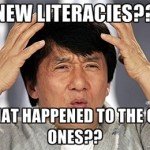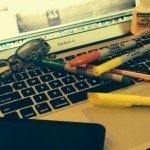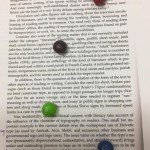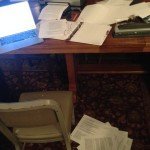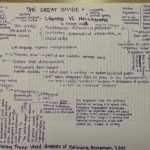
Amanda Rhine: The Rise of Writing (chapter 3)
Writing is the Right Thing to Do for Literacy
In chapter 3 “Occupation: Author” in The Rise of Writing, Deborah Brandt starts off by stating “The belief that writing ability is a subsidiary of reading ability runs deep in American society and schooling. You can only write as well as you can read. The best way to learn how to write is to read, and read some more. Reading is the best way to exercise the mind” (89). These were all (almost verbatim) proclamations that I heard growing up, so I think Brandt really taps into the typical old school American literacy mindset here (not surprising since she’s Deborah Frickin’ Brandt). However, as Brandt discovered with Evan, reading and writing don’t necessarily go hand-in-hand––which is not a bad thing.
Evan had a well-known exotic animal website that “attracted the attention of a major publishing house for pet care books” (92) and published a book. As a result, Evan identified professionally as an author and has gone on to write magazine articles, etc. While Brandt was interviewing him about his literacy development and the role reading had, Evan confessed that he did not like to read, stating, “I’d rather be writing than reading” (92). This is not uncommon, in my opinion, since I can relate and know many authors who feel the same. Brandt was intrigued by Evan’s declaration and his literacy development being connected to broader industries of writing rather than reading (93), so she set off to do some research.
I won’t go into the details of Brandt’s literacy development research study, because there’s a lot of it in this chapter, but the main takeaway from Brandt’s arguments is that she advocates a “full return to the heritage of mass writing as a basis for advancing a genuinely writing-based literacy” (133). Brandt’s idea of this heritage is not based on the American idea that writing is dependent on reading––essentially that literacy theory has become obsolete. Brandt’s arguments are based on the “evidence drawn from the testimonies of thirty young adults who pursue literacy predominantly through writing; individuals who elect to write on a nearly daily basis and in genres long considered bulwarks (defensive walls) of a thoughtful reading literacy; individuals who have found ways to orient to writing even when the environment around them tries to orient them otherwise” (133). So while the notion of reading being a catalyst in writing advancement may still present be in teaching and sponsorship, writing is a significant player in literacy development by itself. It promotes a motivation for self-improvement that isn’t restricted to someone’s reading ability. Therefore writing-based literacy and reading-based literacy should not be lumped into one literacy development practice in order to be considered beneficial.
*Side note: I own the Kindle version of The Rise of Writing, so my page citations might differ from those of a physical copy.
